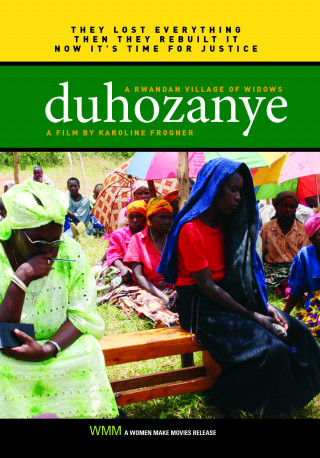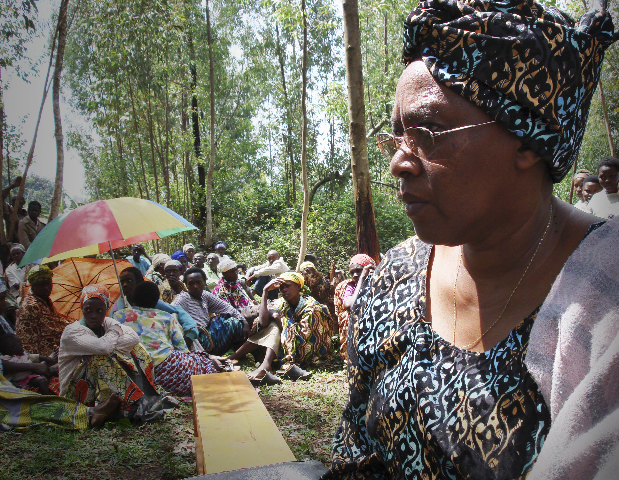Duhozanye: A Rwandan Village of Widows
Norway/Rwanda | 2011 | 52 minutes | Color | DVD | Kinyarwanda/Norwegian | Subtitled | Order No. 111034
SYNOPSIS
PRESS
“Suitable for mature high school classes and college courses in cultural anthropology, anthropology of war/genocide, political anthropology, anthropology of gender, and African studies, as well as for general audiences.”
ABOUT FILMMAKER(S)
Born in 1961 in Oslo, Norway Karoline Frogner is a one of Norway’s most well known documentary filmmakers. She runs the Norwegian production company, Integrity Productions AS. Before her career in filmmaking, Frogner studied photography. Aside from filmmaking, Frogner is also a historian of Norwegian Jews during WWII. Her book: "Time of Darkness: Women's Encounters with Nazism" provides detailed interviews with women who survived the Ravensbruenk concentration camp. The subjects of Frogner's work usually deals with human rights, and her documentaries aim to reveal political controversies. (3/11)


